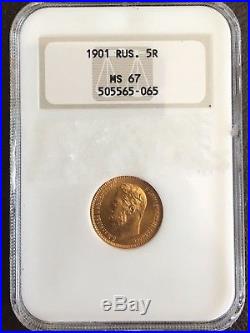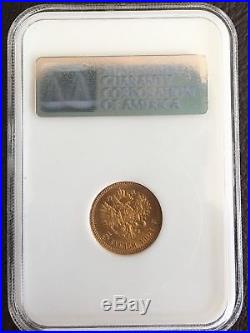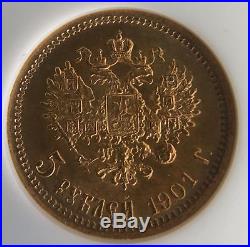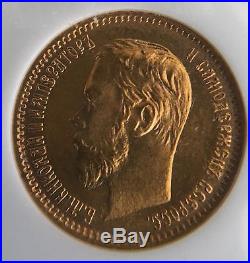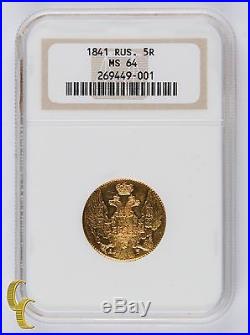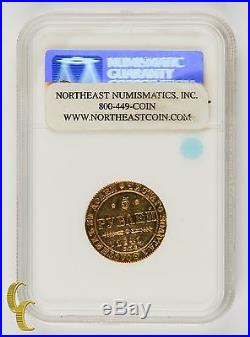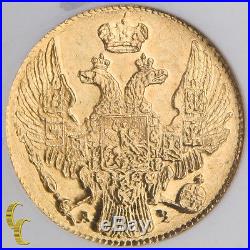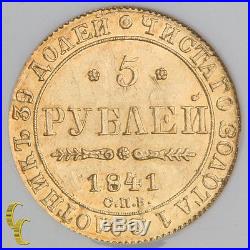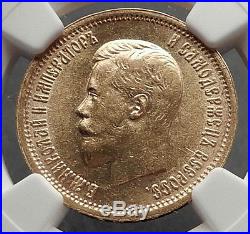
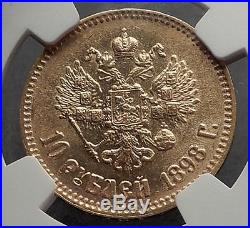
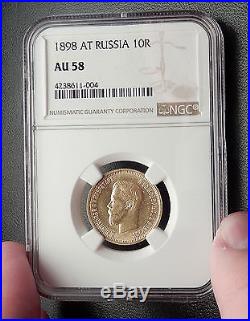
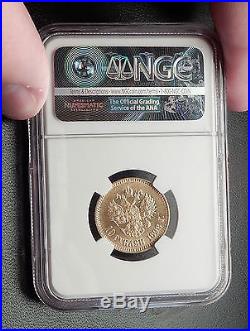
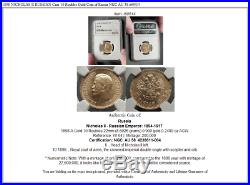

Item: i60514 Authentic Coin of. Head of Nicholas II left. Royal coat of arms, the crowned imperial double eagle with scepter and orb. Numismatic Note: With a mintage of only 200,000, compared to the 1899 year with mintage of 27,600,000, it looks like the 1898 year coin is, or should be considered scarce. Nikolay II, Nikolay Alexandrovich Romanov 18 May. 1868 17 July 1918 was the last Tsar of Russia , Grand Duke of Finland , and titular King of Poland. His official title was Nicholas II, Emperor and Autocrat of All the Russias and he is currently regarded as Saint Nicholas the Passion-Bearer by the Russian Orthodox Church. Nicholas II ruled from 1894 until his abdication on 15 March 1917. His reign saw Imperial Russia go from being one of the foremost great powers of the world to an economic and military disaster. Critics nicknamed him Bloody Nicholas because of the Khodynka Tragedy , Bloody Sunday , and the anti-Semitic pogroms that occurred during his reign. Under his rule, Russia was defeated in the Russo-Japanese War. As head of state, he approved the Russian mobilization of August 1914, which marked the first fatal step into World War I and thus into the demise of the Romanov dynasty less than four years later. Nicholas II abdicated following the February Revolution of 1917 during which he and his family were imprisoned first in the Alexander Palace at Tsarskoye Selo , then later in the Governor’s Mansion in Tobolsk , and finally at the Ipatiev House in Yekaterinburg. Nicholas II, his wife, his son, his four daughters, the family’s medical doctor, the Tsar’s valet, the Empress’ lady-in-waiting and the family’s cook were all executed in the same room by the Bolsheviks on the night of 16/17 July 1918. This led to the canonization of Nicholas II, his wife the Empress and their children as martyrs by various groups tied to the Russian Orthodox Church within Russia and, prominently, outside Russia. A coat of arms is a unique heraldic design on a shield or escutcheon or on a surcoat or tabard used to cover and protect armour and to identify the wearer. Thus the term is often stated as “coat-armour”, because it was anciently displayed on the front of a coat of cloth. The coat of arms on an escutcheon forms the central element of the full heraldic achievement which consists of shield, supporters, crest and motto. The design is a symbol unique to an individual person, and to his family, corporation, or state. Such displays are commonly called armorial bearings , armorial devices , heraldic devices , or simply armorials or arms. Historically, armorial bearings were first used by feudal lords and knights in the mid-12th century on battlefields as a way to identify allied from enemy soldiers. As the uses for heraldic designs expanded, other social classes who never would march in battle began to assume arms for themselves. Initially, those closest to the lords and knights adopted arms, such as persons employed as squires that would be in common contact with the armorial devices. Then priests and other ecclesiastical dignities adopted coats of arms, usually to be used as seals and other such insignia, and then towns and cities to likewise seal and authenticate documents. Eventually by the mid-13th century, peasants, commoners and burghers were adopting heraldic devices. The widespread assumption of arms led some states to regulate heraldry within their borders. However, in most of continental Europe, citizens freely adopted armorial bearings. Despite no widespread regulation, and even with a lack in many cases of national-level regulation, heraldry has remained rather consistent across Europe, where traditions alone have governed the design and use of arms. Unlike seals and other general emblems , heraldic achievements have a formal description called a blazon , expressed in a jargon that allows for consistency in heraldic depictions. In the 21st century, coats of arms are still in use by a variety of institutions and individuals; for example, universities have guidelines on how their coats of arms may be used, and protect their use as trademarks. Many societies exist that also aid in the design and registration of personal arms, and some nations, like England and Scotland, still maintain to this day the mediæval authorities that grant and regulate arms. Ilya Zlobin, world-renowned expert numismatist, enthusiast, author and dealer in authentic ancient Greek, ancient Roman, ancient Byzantine, world coins & more. Ilya Zlobin is an independent individual who has a passion for coin collecting, research and understanding the importance of the historical context and significance all coins and objects represent. Send me a message about this and I can update your invoice should you want this method. Getting your order to you, quickly and securely is a top priority and is taken seriously here. Great care is taken in packaging and mailing every item securely and quickly. What is a certificate of authenticity and what guarantees do you give that the item is authentic? You will be very happy with what you get with the COA; a professional presentation of the coin, with all of the relevant information and a picture of the coin you saw in the listing. Additionally, the coin is inside it’s own protective coin flip (holder), with a 2×2 inch description of the coin matching the individual number on the COA. Whether your goal is to collect or give the item as a gift, coins presented like this could be more prized and valued higher than items that were not given such care and attention to. Is there a number I can call you with questions about my order? When should I leave feedback? Please don’t leave any negative feedbacks, as it happens sometimes that people rush to leave feedback before letting sufficient time for their order to arrive. The matter of fact is that any issues can be resolved, as reputation is most important to me. My goal is to provide superior products and quality of service. How and where do I learn more about collecting ancient coins? Visit the “Guide on How to Use My Store” for on an overview about using my store, with additional information and links to all other parts of my store which may include educational information on topics you are looking for. You may also want to do a YouTube search for the term “ancient coin collecting” for educational videos on this topic. The item “1898 NICHOLAS II RUSSIAN Czar 10 Roubles Gold Coin of Russia NGC AU 58 i60514″ is in sale since Saturday, April 1, 2017. This item is in the category “Coins & Paper Money\Coins\ World\Europe\Russia\Empire (up to 1917)”. The seller is “highrating_lowprice” and is located in Rego Park, New York. This item can be shipped worldwide.
- Denomination: 10 Roubles
- Composition: Gold
- Grade: AU 58
- Certification: NGC
- Country of Manufacture: Russia
- Year: 1898
- Country/Region of Manufacture: Russian Federation
- Certification Number: 4238611-004

